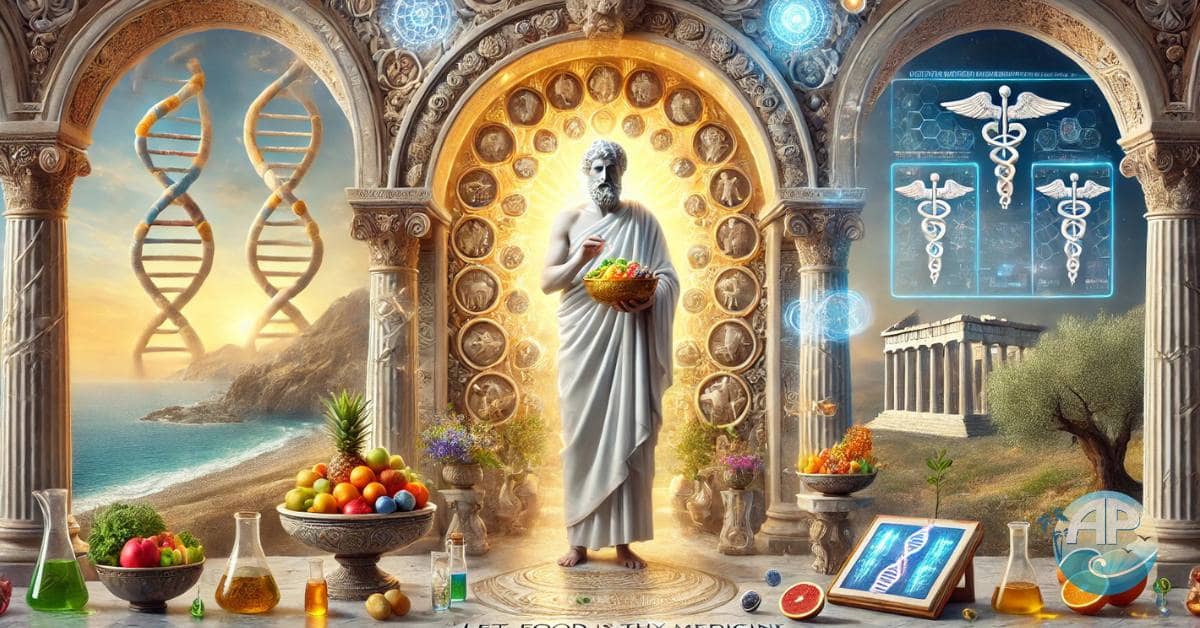Explore Hippocrates’ teachings on health, ethics, and “Let Food Be Thy Medicine.”
Exploring the Life, Philosophy, and Lasting Influence of Hippocrates
Hippocrates and his teachings have shaped the foundation of modern medicine, emphasizing natural remedies, ethics, and holistic healing. Known as the “Father of Medicine,” his philosophy remains timeless and relevant in today’s healthcare practices. This post explores his life, philosophy, and the lasting impact of his wisdom.
Table of Contents
- Who Was Hippocrates?
- Contributions of Hippocrates
- Teachings of Hippocrates
- Philosophy of Hippocrates
- Hippocrates’ Legacy
- Interesting Facts
- Why Hippocrates Matters
- Applying His Teachings
Who Was Hippocrates?
The Early Life of Hippocrates
Hippocrates was born around 460 BCE on the Greek island of Kos. His family had a long tradition of practicing medicine, with his father, Heraclides, being a physician. Growing up, Hippocrates was immersed in the early medical practices of his time, which blended natural remedies with philosophical reasoning. Learn how ancient wisdom like his aligns with modern approaches in Hippocrates’ Principles of Health: Unlocking Ancient Wisdom.
Historical Context
Hippocrates lived during the Classical Greek era, a time when philosophy, science, and the arts flourished. Influenced by thinkers like Socrates and Democritus, Hippocrates sought to apply logical principles to medicine, moving away from the supernatural explanations prevalent in his time.
The Contributions of Hippocrates
The Hippocratic Oath
One of Hippocrates’ most enduring legacies is the Hippocratic Oath, a code of ethics still relevant to medical professionals today. The oath emphasizes the principles of doing no harm, maintaining patient confidentiality, and practicing medicine ethically.
The Hippocratic Corpus
The Hippocratic Corpus is a collection of texts attributed to Hippocrates and his followers. These writings cover various topics, from diagnosing diseases to surgical practices, and reflect his philosophy of natural causes and treatments.
Clinical Observations
Hippocrates introduced the idea that diseases stem from natural, rather than supernatural, causes. He emphasized careful observation, diagnosis, and prognosis, setting the foundation for evidence-based medicine. This perspective resonates with other ancient practices, like those found in Ayurvedic and Traditional Chinese Medicine: Benefits & History.
The Teachings of Hippocrates
“Let Food Be Thy Medicine”
Perhaps his most famous teaching, Hippocrates believed in the power of food as a tool for healing. He advocated for diets rich in natural, whole foods, emphasizing their role in preventing and treating illness.
- Example: The ancient Greek diet, which included fresh fruits, vegetables, grains, and olive oil, influenced his philosophy.
- Modern Relevance: Explore similar principles in Biblical Superfoods for Health: Unlocking Ancient Wisdom and see how they can transform your diet.
The Four Humors
Hippocrates taught that the body’s health depended on the balance of four humors: blood, phlegm, yellow bile, and black bile. Although outdated, this concept laid the groundwork for understanding the importance of balance in health.
Holistic Healing
Hippocrates advocated treating the whole person, not just symptoms. He believed that lifestyle factors such as diet, exercise, and emotional well-being were crucial to health. For a deeper dive into balance, read Longevity and Quality of Life: Finding the Right Balance.
The Philosophy of Hippocrates
Natural Causes Over Superstition
Before Hippocrates, illness was often attributed to divine punishment or curses. He challenged this view, asserting that diseases had natural causes and could be studied scientifically.
Ethical Practice
Hippocrates emphasized integrity in medicine. His principles guide physicians to prioritize patients’ well-being over personal gain.
Prevention Over Cure
He believed in the importance of preventing illness through healthy habits, a concept echoed in modern public health strategies. This ties closely to practices like Yoga: Strength for Body and Mind – Achieve Total Wellness as part of holistic prevention.
Hippocrates’ Legacy
Influence on Modern Medicine
Hippocrates’ approach to observation, diagnosis, and treatment has profoundly influenced modern medicine. His teachings are seen in practices like evidence-based medicine and patient-centered care.
Ethics and the Hippocratic Oath
The ethical guidelines he proposed continue to guide doctors worldwide, ensuring that medical practice remains compassionate and responsible.
Nutrition and Preventive Care
Hippocrates’ focus on food as medicine has inspired the growing field of nutritional science. Discover how this is mirrored in modern discussions like Biblical Superfoods for Health: Unlocking Ancient Wisdom.
Interesting Facts About Hippocrates
- Traveler and Teacher: Hippocrates traveled widely across Greece, Egypt, and Asia Minor, sharing his knowledge and learning from others.
- Plague Treatment: Historical accounts suggest he treated epidemics, demonstrating his practical and scientific approach to medicine.
- Personal Responsibility: He believed individuals should take responsibility for their health by adopting healthy habits.
Why Hippocrates Matters Today
The principles of Hippocrates—natural remedies, ethical practice, and holistic healing—are timeless. In a world where technology often overshadows the basics, his teachings remind us of the importance of simplicity, balance, and integrity in health care.
“Healing is a matter of time, but it is sometimes also a matter of opportunity.” – Hippocrates
Applying Hippocrates’ Teachings to Your Life
- Focus on Nutrition: Incorporate whole, natural foods into your diet.
- Prioritize Balance: Adopt a balanced lifestyle, integrating physical, emotional, and mental well-being.
- Practice Prevention: Take proactive steps to maintain your health.
Conclusion
Hippocrates’ teachings have transcended centuries, shaping the very foundation of medicine. His emphasis on ethical practice, natural causes, and holistic healing remains as relevant today as it was over 2,000 years ago. By embracing his wisdom, we can strive for a healthier, more balanced life.
Your health is your greatest wealth. iFindHealth empowers you with natural remedies, expert advice, and tools to live your best life. Ready to take control of your well-being?” Start here!



